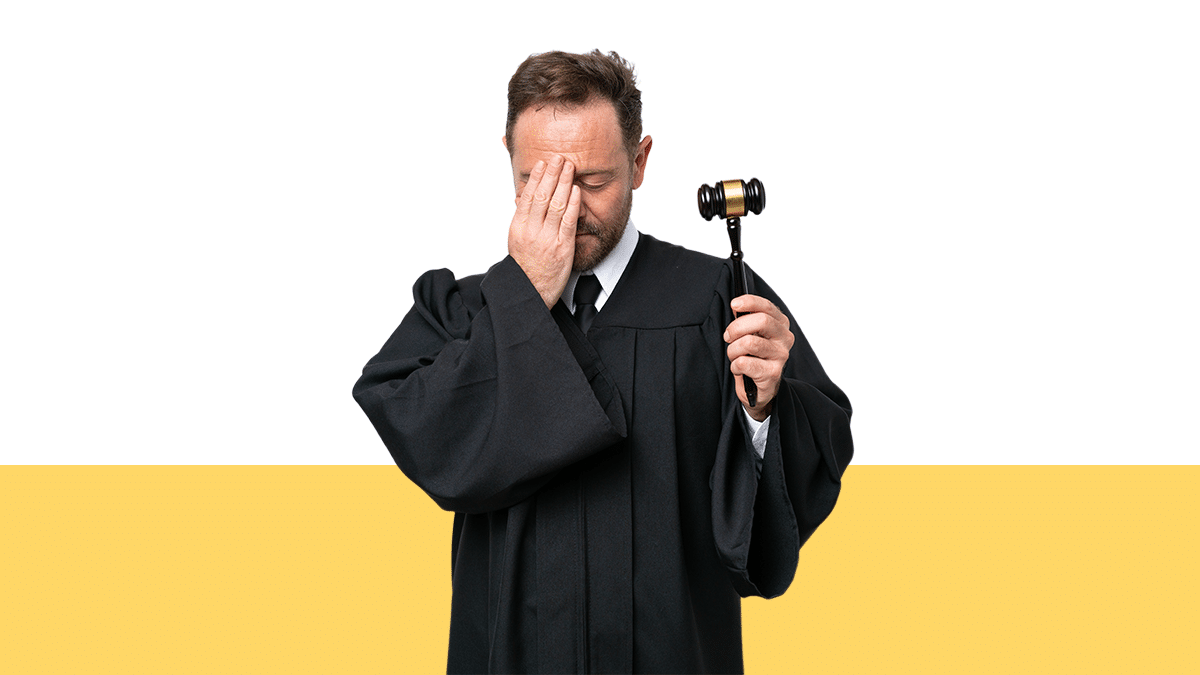
Illinois Custody Laws
As you navigate the system with or without a child custody lawyer, remember that the premise of custody determinations in Court is known as the best interest of the children standard. The standard is the same question of children’s best interest, whether the custody matter is for children born to a marriage or born out of wedlock. Certain questions are asked in every case. Who has been the primary caregiver of the minor child? Who has attended medical appointments for the children? Who has been the main the point of contact for the school? Is one of the parties a stay-at-home parent? Which parent is more likely to promote and foster a health relationship between the children and the other parent?
The law does not provide a hard and fast rule for custody determinations. Rather, the Court applies a balancing test that weights a variety of factors to determine the best interest of the child. These factors, known as the “best interest” factors, are provided by statute. Custody cases cannot be assessed and determined until legal parentage is established, which differs depending on whether the parents of the child were married to each other at the time of birth. However, determinations of custody encompass almost the same process whether the parties are married at the time of the child’s birth or not.
Parenting Time Guidelines
One of the most important parental rights is the amount of time that you get to spend with your children, and many other parental rights stem directly from your parenting time and the visitation schedule determined by the Court. As part of our representation, your child custody lawyer with Pro Legal Care LLC will help craft a fair schedule of parenting time for both parties to work from. Who will provide the transportation? Where will the children be exchanged? Will the children be in the care of a parent whenever possible?
These are the types of questions that must be answered to determine the parenting time schedule, which ultimately will be signed by the judge and enforced by the inherent contempt authority of the Court. Your parental rights will be outlined in a parenting plan by the time your case is resolved, which will be your reference point to your co-parenting relationship. Among other child related issues and parental rights, parenting time schedules are typically included in the parties’ parenting plan. The laws on parenting time are shifting in the direction of a greater amounts of parenting time for non-custodial parents. Modernly, lawmakers have taken steps to eliminate the perception that of one caretaker parent and one visiting parent. Make sure you are thoughtful and cautious in establishing your parenting time schedule, as the allocation of parenting time is often foundation to your case.
Rockford child custody lawyers acknowledge that legal terms change over time, and the word “custody” itself is a recent example. The laws involving custody in the State of Illinois have called for an overhaul of terms and a total name-change of the word “custody.” Under the previous terminology, “custody” would be awarded to one parent, and “visitation” be awarded to the other parent, previously called the non-custodial parent. Now, as Illinois family law attorneys know, the words “custody” and “visitation” have been removed from the Parentage Act and the Illinois Marriage and Dissolution of Marriage Act. The new legal term, “parenting time,” has taken the place of both the terms “custody” and visitation. Despite the formal name change, lawyers and judges occasionally still use the terms custody and visitation for the sake of clear communication. ProLegalCare.com also uses the terms “visitation” and “custody” as interchangeable with “parenting time.”
Based on the family laws of the State of Illinois, the “allocation of parental rights and responsibilities” is the formal legal term to describe the determination of child custody. The Court’s determination of child custody can be the most influential decision of your life and the lives of your children. Whether your case involves a divorce, or you have former partner with whom you were never married, the standard to determine custody is known as “the best interests of the child.” The test to determine the children’s best interests is known as a balancing test. Illinois judges are required to weigh each of the factors to determine which course of action is in the best interest of the children. In cases where the parties are contesting custody over multiple children, the dynamics are more challenging for both the judges and the lawyers. The Court will typically place the children with the same parents, because splitting up the children is discouraged. For example, if custody of one child is determined to be most appropriate with the mother, then the mother is probably the most appropriate parent for the brothers.
Illinois Child Custody Laws for Unmarried Parents
Unmarried parents do not receive the same protections under the law, and do not have the same parental rights, as married parents do over their minor children. A man who is married to a mother who gives birth is presumed to be the father of the child, while an unmarried parent does not receive the same protection. For nonmarital children, the law provides opportunities for fathers to submit a Voluntary Acknowledgment of Paternity (VAP). This is the primary mechanism by which a father’s name is entered on a birth certificate. However, a man’s name appearing on the birth certificate does not necessarily mean he is the legal father of that child.
For an unmarried man to have any parental rights under the law, the man must first be legally acknowledged or adjudicated to be the father of the particular child or children. Without a legal designation of parentage, there are no parental rights for father’s of children born out of wedlock. For fathers who are married to the mother at the time of a child’s birth, the foundation of legal parentage is presumed. Do not take any chances on your parental rights, as your children are at stake. Your parental rights are not protected without the help of an attorney, especially if you were not married at the time your children were born.
Residential Custody

Child custody comes in a variety of forms, and the law is not consistent with its use of the word “custody.” The meaning of custody varies widely depending on the context, and many states have phased out the use of the term altogether. However, the concept remains as a pillar to parental rights and family law, because the term “custody” speaks to the most important of all of the parental rights: the amount of time you spend with your children.
Parents that have been awarded residential custody have the majority of the parenting time between the two parties. Aside from the obvious reasons, residential custody is important because parenting time directly affects your remaining parental rights. As it sounds, residential custody is a Court’s determination of where a child resides. Ordinarily, the parent awarded residential custody receives child support from the other parent, because it is highly unusual for both parents to share jointly in the designation of residential custody. Further, if a parent is awarded residential custody of a child or children, other parental rights tend to flow from the designation of residential custodian.
Uniform Child Custody Jurisdiction and Enforcement Act
With modern technology, distance has become less important and the world has become a smaller place. The Uniform Child Custody Jurisdiction and Enforcement Act (UCCJEA) is the tool that helps decide which state and which Court is proper to hear a particular custody case. When a custody case begins with two parents living in different states, the UCCJEA is typically applied to determine jurisdiction. Jurisdiction refers to where the case belongs, because custody is determined by only one court at a time.
With our federal system of government, the issues of family and custody law are usually left to the state governments. Since national laws do not exist for family or custody matters, the result was a different set of family laws in every state. This created a problem for families across the county, causing a great deal of confusion about which state is the proper. The Uniform Child Custody Jurisdiction and Enforcement Act was created to solve this problem. In order to prevent the confusion of which state a custody case belongs, 49 of the 50 states have adopted some form of the UCCJEA. Consequently, the same rules apply from across state lines in order to determine a child’s home state.
Rockford IL Child Custody Lawyer
Attorney Zachary Townsend and his experienced team at Pro Legal Care LLC work with child custody cases on a daily basis and have the experience you need to navigate the system. Schedule a free consultation online today. Attorney Townsend also offers Emergency Custody consultations if you or your children are in a situation that affects your health and safety.
Dealing With a Vexatious Litigant in Family Court
Understand the concept of a vexatious litigant and learn how to protect yourself from their harassment and meritless court filings.
Continue Reading Dealing With a Vexatious Litigant in Family Court
Right of First Refusal in Illinois Custody Cases
In your parenting plan or child custody agreement, the well-being of the child should always be the top priority. Many Illinois Courts operate on the assumption that a time between a child and parent is…
Continue Reading Right of First Refusal in Illinois Custody Cases
Is a Step Parent a Legal Guardian?
When people in blended families start asking what rights a stepparent has over their step children, one question often comes up: is a step parent a legal guardian? The answer is clear – no, they…
Can a Stepparent Really Get Custody After a Divorce?
As blended families become more common, it comes as no surprise that stepparents develop strong bonds with their stepkids. But when those relationships get tested by divorce or separation, can a stepparent get custody? The…
Continue Reading Can a Stepparent Really Get Custody After a Divorce?
The Illinois Custody Evaluation Process
Custody evaluation is a critical step in high conflict custody cases. Learn what to expect from Rockford Custody Lawyer Zach Townsend.
Is Emotional Abuse Domestic Violence?
Is emotional abuse considered domestic violence? Yes, emotional abuse is a form of domestic violence. It involves patterns of behavior that aim to influence, manipulate, and undermine the victim’s sense of self-worth and to engage…








